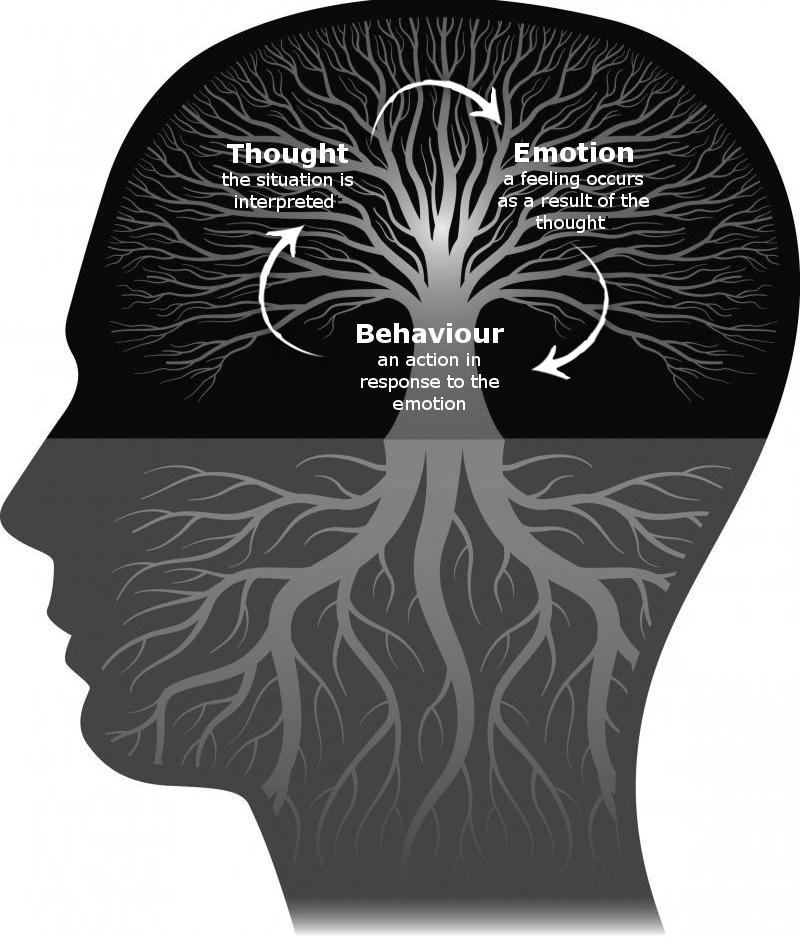CBT combines cognitive therapy (examining the things we think) and behaviour therapy (examining the things we do), we can learn how these things interact, directing that awareness into coping skills for dealing with different problems. This works by identifying then challenging any negative thinking patterns and behaviour which you feel are causing difficulties. In turn this can change the way you feel about situations, having a knock on effect in enabling changes in behaviour.
CBT is highly adaptable to individual needs & evidence suggests it is an effective treatment for a range of common mental health difficulties, specifically:

- Depression
- Generalised Anxiety
- Social Anxiety
- Health Anxiety
- Specific Phobias
- OCD
- Panic Attacks
CBT work takes a more structured approach than general counselling, identifying the issue & working together to form a treatment plan. This is not about giving a diagnosis, but about managing the symptoms at hand as per individual experience. CBT can also be completed over a relatively short period of time if you have a specific problem you wish to work on.
The aim of therapy is to learn skills which can then be taken to daily life, leading to managing problems & stopping them from having a detrimental affect on wellbeing. As when learning any new skills, practice impacts hugely on the results … CBT requires a full commitment to the process as we will agree on tasks to be completed in your own time between sessions.
Cognitive behavioural therapy will focus on the here and now, but we may also look at the past, considering how your past experiences can impact on how we view the world. Research has shown that CBT can be as effective as medication in treatment of depression & anxiety recommended by NICE (National Institute for Health & Care Excellence)

I offer CBT in a structured ‘purist’ form, or integrate techniques into general counselling sessions in line with individual wants and needs.